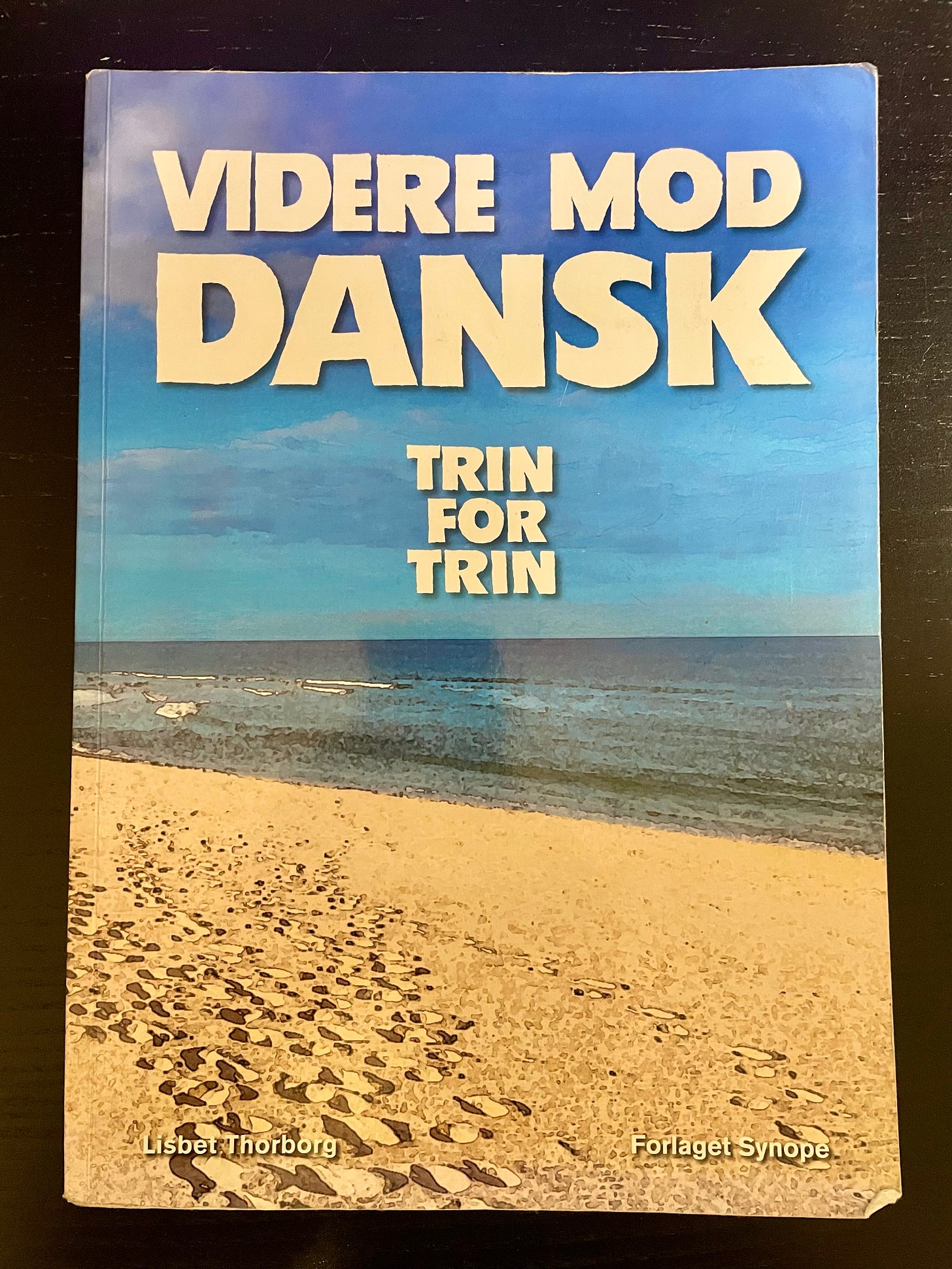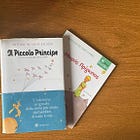Learning the local language, is one of the first challenges when changing countries. It is also one of the most important to tackle; language will not only give you access to the job market, but also to the social market. Knowing the language is a prerequisite for many jobs: teaching, law, medicine and any trade1 will most likely require you to learn the language. But speaking the local language will also open up doors with the locals.
Nelson Mandela once said2,
If you talk to a man in a language he understands, that goes to his head. If you talk to him in his language, that goes to his heart.
Local society might be very open minded, but it will still accept you more easily if you speak their language. For most people, speaking English is an inconvenience. In order to hang out with you, they have to tolerate it. The easier you make it for them to socialize with you, the easier it will be to be accepted and make a social circle. Otherwise, you run the risk of always being their Greek/Italian/Indian friend, who is struggling to fit in3.
So what can I do to learn a language?
This is the question this post aims to answer. Below is a list of all the things that can help you become fluent in any language.
Do you enjoy posts about languages and language-learning? Then you should also check this one out👇
Take classes
The first and most obvious thing to do, is to take classes. If you want to be really prepared, you can even do that before moving. This might be a good idea, if you plan to apply for jobs that require knowledge of the language.
A good friend of mine who wanted to travel through Latin America, took a crash course in Spanish, the month before traveling. That came in handy when she got a flat tire in the middle of nowhere😅.
If you are in Denmark…
all municipalities offer free language courses. You need to pay a deposit to get started, but you get that back, once you pass your exams. More info can be found in danskogproever.
Leveraging Apps
I don’t like the word “leveraging”, because it reminds me of all the finance bros in LinkedIn, but here it might be appropriate.
There are plenty of apps to help you get started with a new language. Popular examples are Duolingo, Babbel and italki. I have no experience with italki, so I am going to focus on the other two.
Duolingo
Personally, I have only used Duolingo -and still using it. Duolingo has used the power of gamification to get you to learn a new language, i.e. it has turned learning into a game.
It is a good app to get you started with the sounds and the vocabulary of the language. Be prepared to encounter bizarre expressions, like this Note shows:
As with most apps, it has a free and a premium version. Their main difference: ads. Duolingo also has a nice background story, related to its freemium pricing model. If you are interested, its co-founder, Luis Von Ahn, explains how it all started, and the idea behind Duolingo, in his Ted talk:
Babbel
Babbel also has simple grammar and vocabulary exercises, like Duolingo. A difficulty with both apps is that, when they try to teach you new grammar rules, they do it by giving you tons of exercises on the topic, but without explaining it first. It is up to you to figure out what is going on. Constantly making mistakes without understanding why, can be frustrating.
The power of Babbel however, lies in the live courses the app provides. You can sign up to courses with real teachers, in groups of up to 6 people. You can pay per class or have an annual subscription. That means that, on top of the exercises you do on your own, you have the opportunity to make conversation with others. If you have ever tried to learn a new language, you know that no matter how good you are on paper, everything goes out the window when you actually need to talk. So, practicing speaking matters.
Combining an app with actual classes, means that you can get the structure and explanation of grammar and syntax from a teacher, while keep practicing on your own, without it feeling like a chore. I managed to dodge most of the frustration with Duolingo, because I had already taken Danish classes and I could understand the grammar. With Dutch on the other hand, that I had taken no classes, I needed to ask friends about what I was doing wrong.
Similarly to apps, there are also YouTube channels that focus on teaching simple grammar and expressions. Easy Greek is an example. There are also Easy German, Easy Italian, and so on.
Language Exchange
Once you start making simple sentences, like describing yourself and your hobbies, you are in a position to do a language exchange. The premise is simple: you find a person who is fluent in the language you want to learn and who wants to learn a language you are fluent in. You meet in regular intervals and you spend half the time practicing the first language and half practicing the second. The first times will be tough and you will be sweating every time you try to make a sentence, but you will soon feel the improvement.
I have tried a Danish-Greek exchange and I can say that the biggest challenge is discipline. Discipline to meet regularly. Discipline not to switch to English when you are struggling to speak your mind. Nevertheless, struggling to speak for 30’ every week, will have a tangible effect in your progress.
The more popular the language you are offering, the most likely it is to find a language exchange partner. For instance, it is more likely that someone is interested in learning Spanish, than Greek. Spanish is a highly sought after language and for good reasons. I was lucky; I found a girl who was in a relationship with a Greek guy in the past, but she liked the language and culture, so she wanted to continue learning. She was taking classes and in parallel, she was doing language exchange. Otherwise the chances that someone from Denmark would like to learn Greek would be slim, if not non-existent.
If you are in Denmark…
and interested in language exchange, you can search for the respective Facebook group. Generator hostel in Copenhagen also used to have language exchange nights, but not on a regular basis. You might also want to keep an eye for meetups.
(Re)watch series
I belong to the generation that learned English by watching Friends and I know many people who did the same. Why have many people learned English this way? Because it is fun. For years, every Sunday afternoon, I was not learning a language; I was watching a series I enjoyed. Learning English was a side-effect.
You can apply this to any language. Find a series that is interesting -and that has subtitles you can understand- and start watching. If you get a bit more comfortable, you can re-watch a series you already know, in the new language. You will not understand everything, but you already know the plot. If listening is too challenging, you can also turn on the subtitles. The ultimate boss, is watching a new series directly in the new language. First with and then without subtitles. That will force you to be focused and try to understand what is going on.
Watching Casa de Papel4, taught me the Spanish word for robbers5. I don’t know where I will use that, but my point is, watching series you enjoy, works.
If you are a beginner and starting to watch a series for the first time, I would suggest choosing something that is easy to follow, even though it might not be the most interesting show. That is for two reasons:
Effort
Understanding what is going on in a new language, takes a lot of focus and effort. Even if the series is very interesting, if you cannot follow, you will give up quite fast.
Everyday language
You want to choose a show that will help you learn everyday expressions. Those are usually social or comedy series.
In my effort to learn Danish, I tried watching Danish shows, with English subtitles. My example however, is one you should avoid: I was watching Borgen, a series about Danish politics and how the female leader of a small party, ends up becoming prime minister. The show is very interesting and well made: you see how politics work behind the scenes and how power can influence even the most down-to-earth person. The main character starts as an individual who always stands by her values and puts family first; she ends up -spoiler alert- divorced due to her work and realizing that staying in power requires compromising your ideals.
10 out of 10 for plot and image, but it didn’t help me with Danish. Why? Because the plot was difficult to follow without reading the subtitles. There were a lot of things happening fast and details mattered. On top of that, it included a lot of formal language6, since the show was about politics. I watched all seasons and I really enjoyed them, but I cannot say it helped me learn Danish7.

If you want to learn Danish…
I would instead recommend watching Rita, a series about the life of a rebel school teacher. Simple plot, simple dialogues and if you miss a sentence or two, no biggie. You are also most likely to learn expressions that you might actually use in real life.
(Re)read books
When I first moved to Norway, I had a German colleague who was fluent in Norwegian. The way she had learnt the language, was by re-reading her favorite book in Norwegian. Not only that, but she had also done that with other languages. Mind, blown.
Here, I would again suggest that if you have the possibility, choose a simple book. Maybe you love Lord of the Rings, but are you really going to use those expressions in any language? My choice would probably be the Little Prince. I have read it multiple times and I can even quickly refresh it, before reading it any new language.
Do you also like the Little Prince? Then maybe, this is for you👇
Another thing you can do, is read children’s books, or comics. It might be a bit embarrassing to go to your local library and borrow Dumbo the flying elephant, but it will help you get started. Also, everyone will be happy to help someone who is trying to learn, so don’t be afraid of being embarrassed.
Listen to podcasts
Similarly to watching series and movies, you can listen to podcasts. My advice here would be the same: listen to something easy and short. Something that will not drain all your energy and you will not treat it as a chore. Choose a podcast that focuses on one topic, or at least one topic per episode. It is easier to understand what is being said if you know the context.
Even better if there is a single person talking and not a panel. It gets more difficult to understand what is going on, when people are speaking simultaneously.
If you ‘re trying to learn Danish…
try Dansk i ørerne. It is a podcast that, not only helps listeners learn the Danish language, but also the culture. It checks all the important boxes:
Effort. It is short. Each episode lasts maximum 10 minutes.
Everyday language. The podcast is addressed to learners, so the host uses simple expressions.
There is only 1 host. On top of that, she speaks slowly and clearly, on purpose.
It is interesting. Each episode covers a topic about the Danish culture. It can be a tradition, a holiday, a food, or a famous building. In any case, you will learn something about Denmark, that will also help you integrate.
Volunteer
In most European countries, the average population is constantly ageing. In Denmark, loneliness among the elderly is a big issue. Some organizations, have programs where they match younger with older people. The purpose is for the former, to keep company to the latter. That means have regular meetings; then it is up to you two, how you will spend them.
How is this related to languages, you may ask. Well, language learning is a positive side-effect, to this noble cause: you get to improve someone’s life once a week, and at the same time improve your language skills. You could of course request to be paired with someone who speaks English and that wouldn’t make the cause any less noble; but while you ‘re at it, why not improve your Danish? I am pretty sure that there would be plenty of elderly people, who would be more than eager, and most importantly patient, to help you improve.
The challenge to this approach is that, it requires commitment. When paired with someone, you are asked to commit for a certain period, e.g. a year. That means pay them regular visits for a year. You can still take vacation or travel, but overall you need to show up. And that makes sense, because they open their house to you, and you -both- agree to be part of each other’s life; be friends. And friendship comes both with privileges and responsibilities.
If you are in Denmark…
you can check the Red Cross's volunteering programs8. There are plenty you can choose from. Visiting the elderly is just one of them.
Travel
Remember that good friend who took a crash course to be able to travel to Latin America?
A good friend of mine who wanted to travel through Latin America, took a crash course in Spanish, the month before traveling. That came in handy when she got a flat tire in the middle of nowhere.
Well, the course is the first step. The second is to go to the actual place, where they speak the language and try to use it. In a way, a course is like giving you arm floaties. Traveling, is like throwing you in the sea and letting you figuring it out yourself😅.

Join a (sports) club
Joining a sports club will force you to learn a few phrases. There are a bunch of things that lead to this:
Your teammates will speak their language when talking to each other.
You will hear the same words, over and over again. You will not be able to write an essay, but even learning small words like ball or pass, helps more than you think.
You and your teammates are stuck with each other. That means that you have to listen to them speak in every practice and every game. Eventually, you will pick up something.
Just like with watching series, it is fun. Learning the language is a side-effect, and that somehow makes it more effective.
If you are in Denmark
Denmark has a very strong club culture and there are clubs for pretty much anything. While I would still suggest a sports club for the reasons mentioned above, you can always choose another type of club, if sports isn’t your thing.
Are you interested in Denmark’s club culture and life in general? Then maybe you should take a look at these👇
Work in service
That is an idea, in case you do not already have a job and want to focus on learning the language. Working in service means you will interact with many people every day; most of them locals, who expect to be served in their language. That will force you to quickly get over the embarrassment of making mistakes and try to make ends meet, any way you can. Similarly to traveling, working in service means, diving head-first in the language and figuring things along the way.
The most important thing
Don’t be afraid to make mistakes. Practice. Practice at every opportunity: at the supermarket; when you order at a café; with your colleagues during lunch break or when you call your doctor to book an appointment.
You will make a ton of mistakes, but do not let them stop you from practicing.
- The Naive Ignorant
What other techniques have you used to learn a new language? Let me know in the comments👇👇
Engineering and IT might be the most prominent exceptions, where English can be enough.
Internationally known as, Money Heist.
Atracadores, in case you are interested.
The opposition is pushing for elections, is not exactly my day-to-day catchphrase.
I am re-watching it now and I still find it difficult to follow.
The Red Cross is of course just one organizations with volunteering programmes. If you search, you will find more.








So many creative ideas here beyond just using an app. I m going to try them out soon. Thanks for sharing this! :)
I would add two more things. First, there is a lot of mythology about how difficult learning a language is - this mythology exists predominantly in the anglosaxon world, where the % of monolingual people is highest on planet. So my advice - ignore this altogether, because learning a language is easier than those people think. To be reasonably fluent in any language- you need on average 2,000 words. Learning 10 words per day is really not a challenge, and even involving frequent repetitions you can get done with it in 15 minutes per day. I recommend anki, an application for flashcards repetitions (I like it much more than duolingo or babel). With this or similar app, you are at 2,000 words level in under a year, with close to zero effort. Second - go abroad and do not live in a club of expats. Do activities with local people, spend time with them, listen, speak, ask questions. Switch your entire environment to that language, including the interface of your telephone and computer. That way, you're speaking a language in no time. That's all. Good luck!